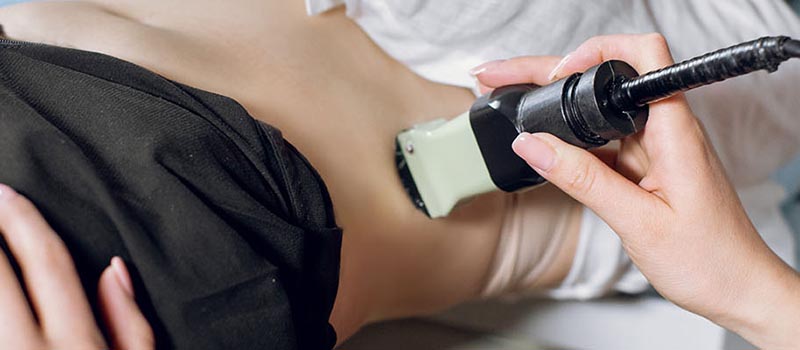Extracorporeal Shock Wave Lithotripsy
What is extracorporeal shock wave lithotripsy (ESWL)?
Extracorporeal shock wave lithotripsy (ESWL, or just lithotripsy) is a procedure that uses shock waves to break up stones in the kidney, bladder, or ureter (the tube that carries urine from your kidneys to your bladder). After the procedure, the tiny pieces of stones pass out of your body in your urine.
What does the extracorporeal shock wave lithotripsy procedure involve?
You may not be allowed to drink or eat anything for several hours before the procedure. Take the drugs your doctor told you to take with a small sip of water. Your doctor or nurse will tell you when to arrive at the hospital.
To get ready for the procedure, you’ll put on a hospital gown and lie on an exam table on top of a soft, water-filled cushion. You’ll be given pain and/or anxiety medicine, as well as antibiotics. During the procedure itself, you may be given general anesthesia, so you’ll be asleep and pain-free. High-energy shock waves will pass through your body until they hit the kidney stones. If you’re awake, you may feel a tapping feeling when this starts. The waves break the stones into tiny pieces.
A tube may be placed through your bladder or back into your kidney. This tube will drain urine from your kidney until all the small pieces of stone pass out of your body. This may be done before or after your lithotripsy treatment.
How long does extracorporeal shock wave lithotripsy take?
The lithotripsy procedure should take about 45 minutes to 1 hour. You will be sedated and need a ride home from the treatment site.
What are the risks of extracorporeal shock wave lithotripsy?
Lithotripsy is safe most of the time. Talk to your doctor about possible complications such as:
- Bleeding around your kidney
- Kidney infection
- Pieces of the stone blocking urine flow from your kidney (this may cause severe pain or damage to your kidney)
- Pieces of stone are left in your body (you may need more treatments)
- Ulcers in your stomach or small intestine
- Problems with kidney function after the procedure
How will I feel after extracorporeal shock wave lithotripsy?
After the procedure, you’ll stay in the recovery room for up to 2 hours. Most people can go home the day of their procedure. You’ll be given a urine strainer to catch the bits of stone passed in your urine. How well you do depends on the number of stones you have, their size, and where in your urinary system they are. Most of the time, lithotripsy removes all the stones.

